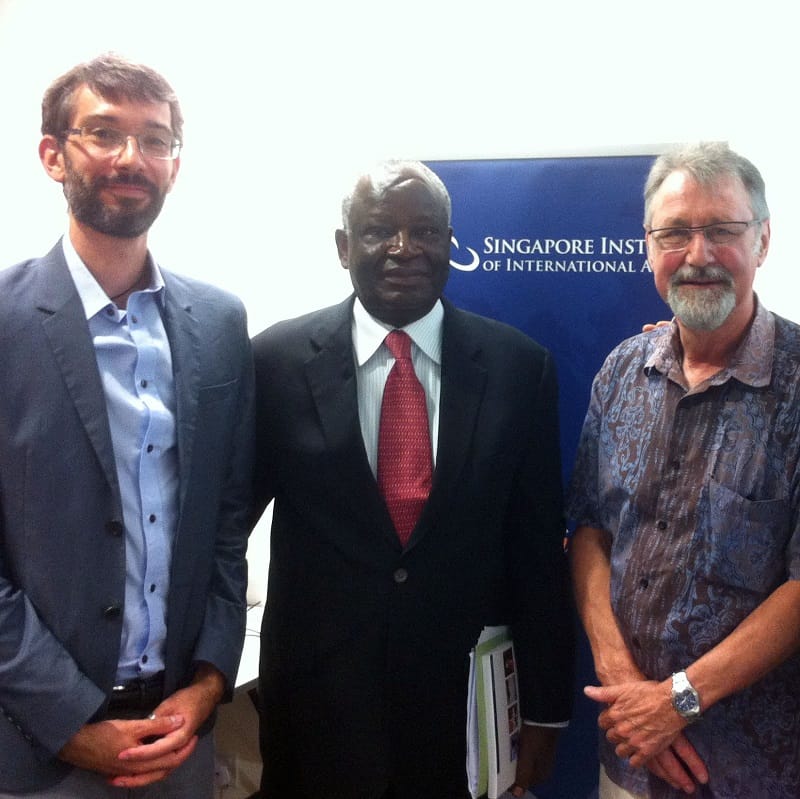Myanmar’s transformation is underway at remarkable speed, but reforms are far from complete. With the country in the process of transition, there is a great deal of uncertainty around Myanmar’s future development, including its foreign relations. The military has introduced and continues to drive the domestic reform process, which is open-ended and therefore unpredictable. But the military’s grip over the levers of foreign policy remains very strong. And the challenges of peacemaking and reconciliation with the minority groups will sorely test the capabilities of the government, the military and the current opposition. What can be expected from Myanmar’s praetorian leadership in the future?
Renaud Egreteau and Larry Jagan — a unique team of an academic and experienced journalist — share insights from their new book, based on extensive interviews and featuring an analysis of the long-term continuities in Myanmar’s foreign policy.
Among the questions to be discussed,
- How will foreign policy evolve as Myanmar’s political reform process continues? How does the Myanmar leadership understand the imperatives and trade-offs of further engagement?
- How important is the China factor in Myanmar’s reforms and political development?
- Are China and India competing in a new “great game” over influence in Myanmar?
- After years of sanctions, what does the “return of the West” hold for Myanmar? How much leverage can the West expect to gain?
- Has the ASEAN policy of engagement with Myanmar paid off? Do Thailand, Malaysia and Singapore stand to gain as Myanmar integrates itself more and more into the international economy?
About the Book:
Soldiers and Diplomacy addresses the key question of the ongoing role of the military in Burma’s foreign policy.
The co-authors, a political scientist and a former top Asia editor for the BBC, provide a fresh perspective on Burma’s foreign and security policies, which have shifted between pro-active diplomacies of neutralism and non-alignment, and autarkical policies of isolation and xenophobic nationalism. The authors argue that key elements of continuity underlie Burma’s striking postcolonial policy changes and contrasting diplomatic practices. Among the defining factors here are the formidable dominance of the Burmese armed forces over state structure, the enduring domestic political conundrum and the peculiar geography of a country located at the crossroads of India, China and Southeast Asia.
The authors argue that the Burmese military still has the tools needed to retain their praetorian influence over the country’s foreign policy in the post-junta context of the 2010s. For international policymakers, potential foreign investors and Burma’s immediate neighbors, this will have strong implications in terms of the country’s foreign policy approach.
Renaud EGRETEAU is Research Assistant Professor with the Hong Kong Institute for the Humanities & Social Sciences at University of Hong Kong, and an IRASEC Research Associate. Larry JAGAN is a journalist and political analyst based in Bangkok.
Venue: SIIA office, The Atrium@Orchard
Date/Time: 10 June 2013 (Monday), 5:30pm -7:00pm
Speakers:
Dr. Renaud Egreteau, Research Assistant Professor, Hong Kong Institute for the Humanities and Social Sciences, University of Hong Kong
Mr. Larry Jagan, former Burma Chief Editor for news and current affairs, BBC World Service
Prof. Ibrahim Gambari, Distinguished Fellow, RSIS




